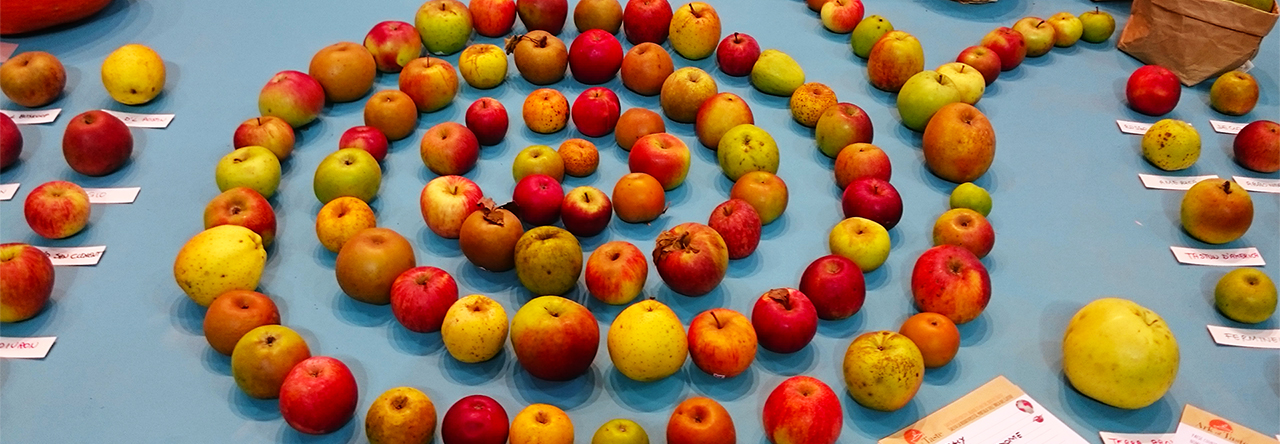Bra, June 19, 2017
Dear Slow Food members,
With this letter, we are formally convening the VII International Congress of the Slow Food association, which will be held in Chengdu, China from September 29 to October 1, 2017. The Congress’s primary objective, as in the past, is to discuss the direction of the Slow Food movement’s policies.
The Congress must first and foremost be a major opportunity for reflection and stimulus for our future.
Through this link you can access the congress document entitled “Food for Thought” which we have been developing over the past months.
It is the result of all the visions and plans that we have come across over the years while traveling among the convivia, Terra Madre communities, and projects across the five continents.
As we did for the Congress held in Turin in 2012, we are sending these suggestions relating to policy and planning to the entire global network, with more than three months to go to the gathering itself.
We have translated the document into eight languages because it is important that it be shared, discussed and publicized as much as possible both inside and outside Slow Food. I therefore would like to encourage you to present it and discuss it at the meetings of every convivium and food community in the world, to promote it publically, to bring it to life with your local experiences, to tell us how you are already putting it into practice in your everyday life and finally to present it officially to your local political authorities and institutions.
Our movement is facing an important moment of reflection, imposed by the reality in which we live and the difficult times we are experiencing.
Being actors of change today means operating in a global community that is fluid and needs to free itself from the excluding and limiting structures of the old models, in order to completely and inclusively embrace the diversity of the world. We as Slow Food must make this diversity our watchword.
First of all food biodiversity, which has always represented our preferred field of action, but without forgetting the cultural and social diversities that now more than ever are in need of being safeguarded and understood.
At a time in history in which fears and suspicions are building walls both real and virtual, we must be able to become the interpreters and promoters of diversity, firstly in our structures, which must be increasingly open and inclusive.
They must be welcoming and able to create the feeling of a team, to rally people together around the principles of “Good, Clean and Fair.” Only in this way can we play an active role in the world to come, and only in this way can we work to make it fairer and more equal.
The Congress, as well as discussing and voting on the guidelines for political strategies for the coming years, will also have the task of electing the new governing bodies, which will take on the responsibility of guiding and assisting the development of Slow Food and Terra Madre over the next four years, in the service of the convivia and food communities around the world. This governance, as has been established over our association’s history, is divided into three levels: the President, the Executive Committee, and the Council. The Congress regulations state that each candidate for the position of Slow Food President presents their own Congress document and their own list of candidates for the Executive Committee, the Council and the role of General Secretary.
The Council, in particular, has the objective of representing the widest possible number of countries, in order to welcome and add value to the extraordinary diversity that animates Slow Food and Terra Madre and which has always been one of our distinctive characteristics and strengths. In this regard, we will be trying to strengthen the presence on the Council of countries that are “smaller” in terms of association members, but which are important for how they have developed the Terra Madre network and its projects. These countries represent an enormous potential for our future.
Regarding the nominations, I think it is important to underline that it is not a case of electing bodies of power but rather bodies that will work in the service of the association. It is therefore important that the candidates nominated to participate in the various governing bodies are chosen from among those people who are most fit to serve Slow Food (obviously also in regard to their home country) for the next four years, able to guarantee available time, energy and representativity.
For any further details, you can refer to the Congress regulations approved by the International Council. If you have any further questions, please contact the Slow Food headquarters in Bra (Cuneo, Italy) for more information (international@slowfood.com).
The documents prepared by the Executive Committee to regulate the 2017 International Congress in Chengdu include the subdivision of delegates per country. As for the previous international congresses, we have chosen the model of participation via delegation. Compared to the past, the mechanism chosen by the Executive Committee proposes identifying delegates based on pre-established quotas calculated based on the members actually active in the country and the presence of the Terra Madre network, as well as the implementation of our movement’s main projects (the Ark of Taste, the Presidia, the food gardens, the Chefs’ Alliance, and the Earth Markets).
This is because, with the aim of becoming increasingly inclusive, we want to gradually encourage an opening toward new forms of joining and participating in the movement. These criteria will allow us to have delegates from around 90 countries in Chengdu. (For more information, countries without a national Slow Food association can refer directly to the Executive Committee, or through their geographic area coordinator at Slow Food’s international headquarters.)
We are preparing for a historic Congress, where we will once more establish ourselves as a political subject involved in global change, as an organization able to bring people together around the idea that food can be the starting point for a process of reversing the trends of a system that currently does not work, forcefully reaffirming the importance of the right to good, clean and fair food for everyone. It will be an occasion that must be organized with care and participation, and we will need to come to Chengdu with the right spirit and able to fully represent our local contexts.
I am sure this will be another great step forward toward planning our future and the world we want to see.
As we look forward to September, I would like to wish you all the best in your work.
Carlo Petrini



